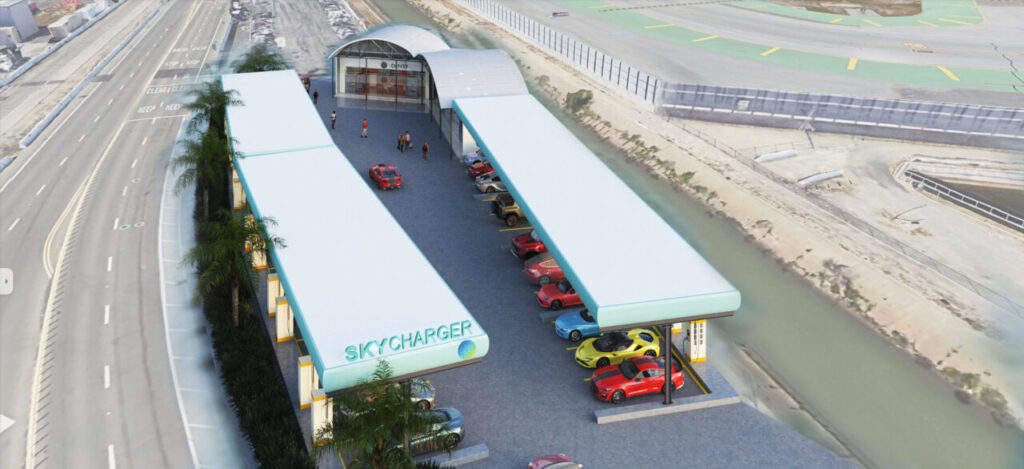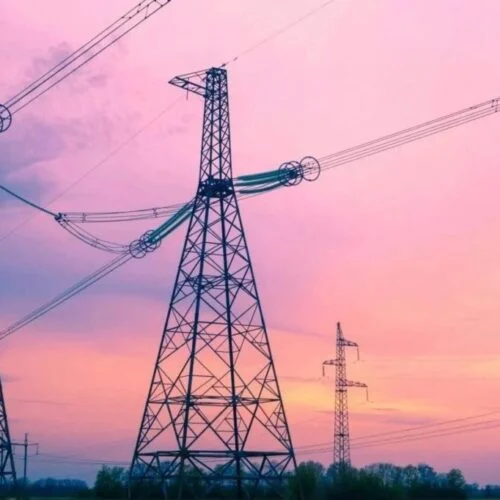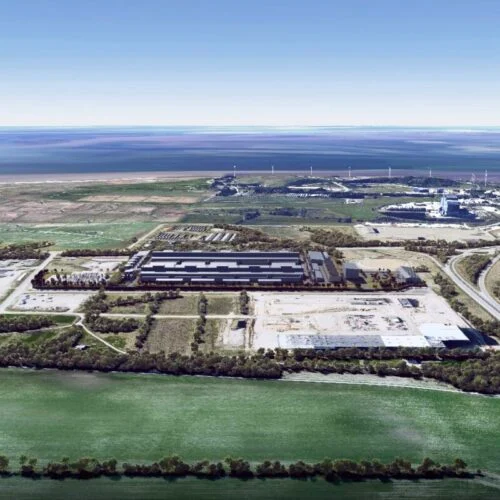US-based EV charging infrastructure firm Skycharger has today (24 June) announced that it has inked a deal to develop a fast charging hub at San Francisco airport.
The 24-port EV charging hub will use 400kW charging ports supplied by Kempower, which will deliver 12 Power Cabinets and 24 Satellite dispensers for the development. Burns & Mcdonnell, an engineering, procurement and construction (EPC) firm, will provide construction services.
The site will primarily serve drivers of rideshare vehicles such as Uber and Lyft, but will also be accessible to EV-driving airport customers and the general public. A surge in demand for EV charging facilities is expected to occur in the coming years in California, as the state’s newly introduced Clean Miles Standard will require 90% of all Uber and Lyft miles to be driven by EVs by the year 2030.
Skycharger estimates that the EV hub will prevent over 200,000 tonnes of CO2 equivalent emissions in the first decade of its operational lifespan.
The news follows another recent success for Skycharger in California, as the firm was recently awarded a $10 million (£7.35 million) grant from the California Energy Commission (CEC) to design, build and operate two publicly accessible electric truck charging stations along the I-5 interstate road in Southern California.
Last year, Skycharger also secured a contract with the Port of San Diego to develop a 701-port charging hub for electric trucks on the Port’s site, which will be paired with a 1.75MW solar PV installation and a 2MW battery energy storage system (BESS).
Andy Karetsky, CEO of Skycharger, said that the company is “grateful” to the San Francisco Board of Supervisors and the SFO Airport Commission for the contract; both boards voted unanimously to select Skycharger to undertake the project.
Karetsky added: “Skycharger’s EV Hub will be a next-generation facility that reflects the steadfast, bold leadership of SFO, San Francisco, and California in clean transportation technologies”, and stated that the company is “moving quickly to bring this online”.
California has emerged as a leader in the US’s attempts to move its EV transition forward. Earlier this month, the results of a smart charging pilot programme funded by the California Energy Commission were released, which revealed that EV charging based on dynamic price signals outperforms time-of-use (ToU) rates, with dynamic price signals able to achieve up to 98% charging load, compared to the 60-70% usually delivered by ToU tariffs.






